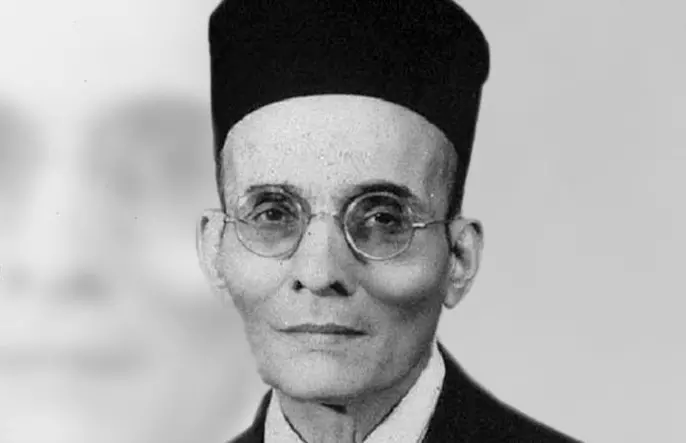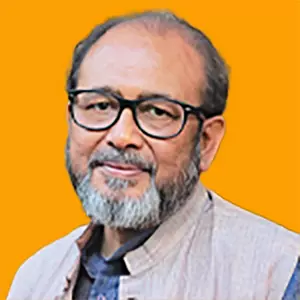
- Home
- India
- World
- Premium
- THE FEDERAL SPECIAL
- Analysis
- States
- Perspective
- Videos
- Sports
- Education
- Entertainment
- Elections
- Features
- Health
- Business
- Series
- In memoriam: Sheikh Mujibur Rahman
- Bishnoi's Men
- NEET TANGLE
- Economy Series
- Earth Day
- Kashmir’s Frozen Turbulence
- India@75
- The legend of Ramjanmabhoomi
- Liberalisation@30
- How to tame a dragon
- Celebrating biodiversity
- Farm Matters
- 50 days of solitude
- Bringing Migrants Home
- Budget 2020
- Jharkhand Votes
- The Federal Investigates
- The Federal Impact
- Vanishing Sand
- Gandhi @ 150
- Andhra Today
- Field report
- Operation Gulmarg
- Pandemic @1 Mn in India
- The Federal Year-End
- The Zero Year
- Science
- Brand studio
- Newsletter
- Elections 2024
- Events
- Home
- IndiaIndia
- World
- Analysis
- StatesStates
- PerspectivePerspective
- VideosVideos
- Sports
- Education
- Entertainment
- ElectionsElections
- Features
- Health
- BusinessBusiness
- Premium
- Loading...
Premium - Events

Even RSS and previous BJP leaders were not very keen to push the Savarkar lineage, but the party under Modi is clear: to harness maximum political dividends for the saffron camp in the next Assembly polls in Delhi
With Delhi Assembly elections fast appraoching, Prime Minister Narendra Modi, as is his wont, beat the deadline to launch a slew of projects in the capital state-city, including in housing and education sectors, on January 3.
Importantly, these included the roll-out of Delhi University’s first major expansion in three decades. The last occasion of significant expansion of collegiate education in the Indian capital was in the 1990s when 12 colleges funded by the Delhi government were added to the university despite it being under the charge of the Centre.
The event in which the foundation stones were laid for two new campuses – East and West, to add to existing ones – North (also the principal and oldest one) and South, along with a college in West Delhi, should have been mounted in a non-partisan matter with political parties across the spectrum deliberating on means to provide high-quality higher education.
Modi launches broadside against AAP
But the function was converted into a political act by Modi who used it to launch abroadside against the Aam Aadmi Party and its leader, Arvind Kejriwal. Controversy also surrounded Delhi University’s decision to name the college after the controversial codifier of the Hindutva ideology and longtime Hindu Mahasabha leader, VD Savarkar. The Congress party denounced this decision and demanded that the college be instead named after Dr Manmohan Singh as mark of respect to the recently deceased former PM.
Also Read: Caste barrier: Where Ambedkar and Savarkar were on the same page
That this important development in the education sector in Delhi was accompanied by acrimonious political slanging exchange between the Bharatiya Janata Party and the Congress underscores that the education field has been converted into a battlefield since 2014.
Educational institutions are not seen by the ruling establishment as merely institutions to produce qualified personnel who can play a meaningful role in the nation’s growth and development. Instead, these colleges and universities are increasingly being treated as factories where politically motivated minds can be signed up for a political project.
Among numerous leaders and eminent Indians after whom the new college could have been named, Savarkar was undoubtedly chosen by the present regime because he is considered the father of the Hindutva ideology for having written the short treatise, Essentials of Hindutva.
Furthermore, even though this event could have mounted any time after DU authorities took the decision, it was scheduled at this juncture with the intention of harnessing maximum political dividends for the BJP in the impending polls in Delhi.
When naming of JNU was opposed
Indian politics has been a more contested arena since the late 80s and early 90s. It is now appropriate to stop the custom of naming educational institutions after political leaders whose legacy one party or social group wants to promote. It is not that there has been no opposition to this trend. Even the naming of the Jawaharlal Nehru University, the most vilified and targeted university under the present regime, was objected to during the debate in Parliament.
Few recall that the Jawaharlal Nehru University Bill was moved by the government in December 1964, seven months after Nehru's death. The education minister, M.C. Chagla, in a passionate statement in the House when moving the Bill, called for a university as a memorial to Nehru's life, work, and ideals. He promised that this university would be 'different'.
But many parliamentarians were dissatisfied with what Chagla had to offer, both with the fact that it was to be named after Jawaharlal Nehru and the 'relatively tepid blend of uniqueness' that was being proposed.
Unlike the situation in the context of the proposed Savarkar College, the government took note of the opposition and referred the Bill to Joint Select Committee which submitted its report on 3 November 1965.
This created the context for the stimulating discussion that was to follow. Even after this, two notes of dissent to the report of the Joint Committee were submitted. These objected mainly to dedicating the university to fulfilling the ideals of Nehru.
Congress seeks Manmohan Singh's name
But the practise has continued. For instance, another DU college, Kamala Nehru College, was first set up as Government College for Women in 1964 and subsequently renamed as Modern College for Women in 1966. However, later in 1974, it was again renamed after Nehru's wife and Indira Gandhi's mother.
Clearly the opposition of the Congress is not to the 'tradition' but to the choice of Savarkar as name for the new DU college. That's why it wanted Manmohan Singh's name instead. It is thus time to put an end to this practise of politicising the process of naming educational institutions with the express aim of providing political dividends for the leader in power.
It was likewise decided to get Modi to lay the foundation stone, albeit virtually, because of the BJP’s practice of Modi being projected as the sole helmsman of government and party.
The choice of Savarkar was contentious because he remains an intensely ‘problematic’ personality. Savarkar’s awkward characteristics stem not just because of being the author of the aforementioned tract, but also because of allegations of involvement in the Gandhiji assassination case.
Despite being acquitted in February 1949, a year after Gandhi's assassination, the needle of suspicion remains pointed in direction because of the JK Kapur Commission of Inquiry which completed its investigations two decades after independent India's first political assassination. In its report, the Commission tellingly wrote, “facts (unearthed or established by the Commission) taken together were destructive of any theory other than the conspiracy to murder by Savarkar and his group.”
Importantly, Savarkar was given the title of ‘Veer’ by his admirers because of his participation in various acts of revolutionary nationalism, including the one which led to the execution of Madanlal Dhingra.
The story behind the title
The title was also bestowed on him because of Savarkar’s inclusive approach in the book he wrote in 1907 – ‘Indian War of Independence 1857’, to mark the golden jubilee of the First War of Independence.
Also Read: ‘Manusmriti’ and Savarkar question: Where Rahul scored in Constitution debate
After his arrest in London and conviction following which he spent more than two-and-half decades in imprisonment, a decade plus in prison and the subsequent period in internment in Ratnagiri, Savarkar played little role in the national movement.
Bolstering Hindu pride and reinforcing their sense of identity remained Savarkar’s primary focus. He vehemently rejected the idea of religious minorities, especially Muslims and Christians to some extent, being equal citizens, unless they embraced Hinduness or considered themselves as Hindus.
He also called for Hindus to enlist in the British Army during World War II and did not join the Quit India Movement. Importantly, Syama Prasad Mookerjee continued to be part of the Muslim League-led West Bengal government.
'Intensely contentious personality'
As a result, despite being one of the tallest icons of the Indian Hindu Rightwing, and even among those walking the ideological middle path, Savarkar remains an intensely contentious personality. The Kapur Commission reports hangs like the sword of Damocles over Savarkar’s head.
This was chiefly the reason why, even after his acquittal, he spent 17 years after his acquittal, till his death in February 1966, in virtual isolation.
It is true that after assuming the office of the Prime Minister, Lal Bahadur Shastri, ordered payment of a monthly pension and Indira Gandhi issued a postage stamp in Savarkar’s honour after she succeeded Shastri. However, the stain on his memory remains.
It is also true that the new college that is expected to be ready in a few years is not the first educational institute named after Savarkar. However, all previous institutions were not named such when his memory was as controversial as now. Against opposition from even within his own alliance, Rahul Gandhi has persistently slammed Savarkar.
As witnessed during last year’s Lok Sabha election, the two primary political fault-lines in the country are over Hindutva and caste, both issues on which Savarkar had a sharply conservative position.
Even RSS was reluctant to embrace Savarkar
In fact, for much of its century-long period of existence, the Rashtriya Swayamsevak Sangh (RSS) was extremely reluctant to publicly embrace Savarkar. Even after his death, the RSS and the Bharatiya Jana Sangh did not eulogise Savarkar because they feared that the smear on his personality would get rubbed on their frontage.
Importantly, in 1969 when the Bharatiya Jana Sangh was in majority in Delhi’s Metropolitan Council and Lal Krishna Advani was its chairperson, the Syama Prasad Mookerjee College for Women was established. This clearly underscores that when the BJP’s preceding political party got an opportunity to name a college, they did not opt to set it up in Savarkar’s name.
Over the past decade, the Modi government has promoted many ideological icons of the Hindutva votaries. But till the parliamentary polls last year, the government was a coalition solely in name, not effectively. Consequently, there was little opposition from alliance partners to the BJP’s ideological push.
With the BJP losing its majority in June 2024 and reduced to a tally of 240 Lok Sabha seats, the party is now dependent on its allies, most importantly Telugu Desam and Janata Dal (U), and it is up to them to decide the extent to which they will allow the BJP to pursue its political agenda.
Even though the college in Delhi is a matter limited to the capital state-city, escalation of the political controversy could electorally damage the prospects of not just these two alliance partners, but other smaller parties too.
Despite the verdict in the BJP’s favour from Maharashtra and Haryana, the NDA remains a fragile coalition and overt promotion of Hindutva would not go down well within it.
Instead of reacting in a kneejerk manner as it did regarding naming the college after Savarkar, when the Congress demanded that the college be named after Manmohan Singh, Opposition parties have to be more adroit, in widening cleavages within the NDA.
(The Federal seeks to present views and opinions from all sides of the spectrum. The information, ideas or opinions in the article are of the author and do not necessarily reflect the views of The Federal.)


